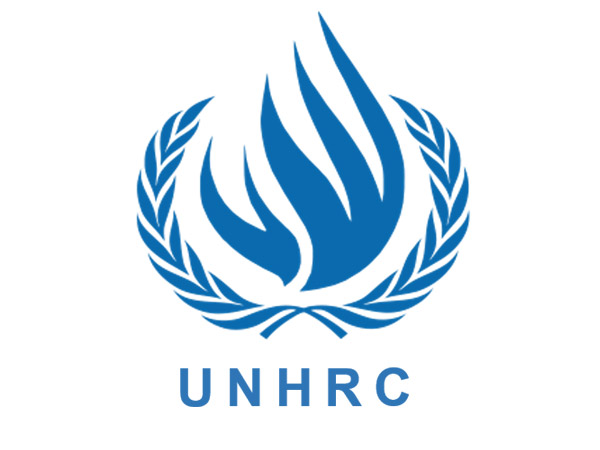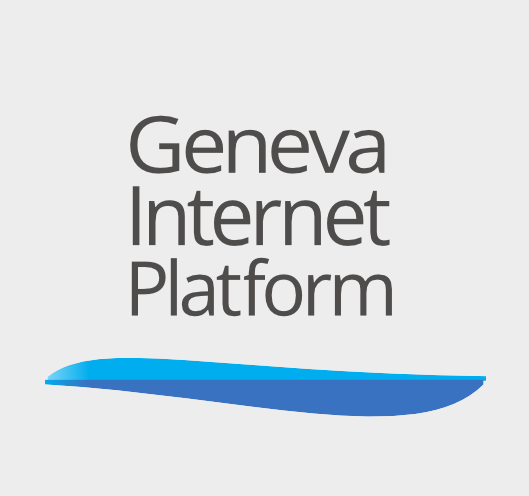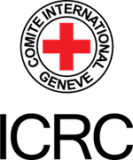Acronym: CSTD
Established: 1992
Address: Palais des Nations, 1211 Geneva, Switzerland
The Commission on Science and Technology for Development (CSTD) is a subsidiary of the UN Economic and Social Council (ECOSOC). It was established to advise the UN General Assembly (UNGA) on science and technology issues through analysis and appropriate policy recommendations. It is the focal point of the UN for science, technology, and innovation for development.
Under the mandate given by ECOSOC, the CSTD leads the follow-up to the outcomes of the World Summit on the Information Society (WSIS) and advises ECOSOC accordingly, including through the elaboration of recommendations aimed at furthering the implementation of the WSIS outcomes. The UN Conference on Trade and Development (UNCTAD) is responsible for the servicing of the CSTD.
Digital activities
The CSTD reviews progress made in the implementation of and follow up to the WSIS outcomes at regional and international levels. It also discusses science, technology, and innovation (STI), including frontier technologies, many of which are digital technologies and are largely linked with digitalisation. Based on thematic reviews and discussions, the CSTD prepares draft resolutions for ECOSOC. These draft resolutions tackle issues ranging from access to the internet and information and communication technologies (ICTs) and frontier technologies to the use of these technologies in achieving sustainable development. Sustainable development is linked particularly to the 2030 Agenda and the 17 sustainable development goals (SDGs), including topics in recent years related to climate action (SDG 13), clean water and sanitation (SDG 6), affordable and clean energy (SDG 7), sustainable cities and communities (SDG 11), Industry 4.0 (under SDG 9), and partnerships (SDG 17). Digital technologies play a role in all SDGs. At each of its annual sessions and intersessional panels, the CSTD addresses two priority themes regarding the use of STI, including digital technologies, in different areas related to the various SDGs.
Digital policy issues
Artificial intelligence Within the work of the CSTD, AI is placed under the term ‘frontier technologies’, which also includes big data analytics, biotech and genome editing, and IoT, https://unctad.org/en/Pages/CSTD/CSTDAbout.aspx
As part of its work on assessing the impact of technological change on inclusive and sustainable development, the CSTD is also exploring the role of frontier technologies including artificial intelligence (AI). At its 22nd session, the CSTD pointed out that AI and other frontier technologies offer significant opportunities to accelerate progress in achieving the SDGs, while also posing new challenges (e.g. disrupting labour markets, exacerbating or creating new inequalities, and raising ethical questions). The CSTD focused its 2019–2020 intersessional work on digital frontier technologies, such as AI, big data, and robotics. For 2021, the CSTD chose another digital technology – blockchain for sustainable development – as a priority theme. In 2022, the CSTD deliberated on industry 4.0 technologies (such as AI, big data, IoT, and robotics) for inclusive development. For 2023, the themes were using STI solutions, especially digital technologies to achieve SDG 6 on water and sanitation, and technology and innovation for cleaner and more productive and competitive production (including digital Industry 4 technologies). The most recent themes, for 2024, are Data for Development and Global cooperation in STI for development (which includes cooperation on digital infrastructure and digital technologies).
- Harnessing rapid technological change for inclusive and sustainable development (2020) (report for the 23rd CSTD session)
- Harnessing blockchain for sustainable development: prospects and challenges (2021) (report for the 24th CSTD session)
- Industry 0 for Inclusive Development (2022) (report for the 25th CSTD session)
- CSTD Dialogue, which brings together leaders and experts to address the question: ‘What must be done to ensure that the potential offered by science, technology, and innovation (STI) towards achieving the SDGs is ultimately realised?’ This dialogue also aims to contribute to ‘rigorous thinking on the opportunities and challenges of STI in several crucial areas including gender equality, food security and poverty reduction.
- Articles on the webpage explore AI-related issues, such as the role of AI in health, a principled approach to AI (written by actors from different stakeholder groups), and Investing in AI-driven innovation for social good.
- A hybrid of a physical and online side event on AI strategies organised during the 25th CSTD.
- A side event on the multifaceted implications of AI organised during the 26th CSTD
- Ensuring safe water and sanitation for all: A solution through science, technology and innovation (2023)
- Technology and innovation for cleaner and more productive and competitive production (2023)
Access In the CSTD’s work, disparities related to access to the internet are referred to as the ‘digital divide’.
During its annual sessions and intersessional panels, as well as in its draft resolutions for ECOSOC, the CSTD tackles aspects related to the digital divide, and outlines the need for further progress in addressing the impediments that developing countries face in accessing new technologies. It often underlines the need for coordinated efforts among all stakeholders to bridge the digital divide in its various dimensions: access to infrastructure, affordability, quality of access, digital skills, gender gap, and others. To this aim, the CSTD recommends policies and actions to improve connectivity and access to infrastructure, affordability, multilingualism and cultural preservation, digital skills and digital literacy, capacity development, and appropriate financing mechanisms. There is an annual follow-up to the progress made on WSIS implementation, which is a critical international process for evaluating progress in overcoming the digital divide in internet access within and across countries. There is also a 20-year review of WSIS that is now beginning, called WSIS+20, which will be held in 2025 in the General Assembly. The CSTD has been undertaking a series of global and regional open consultations to gather inputs from multistakeholders for its report on WSIS+20 to be submitted, through ECOSOC, to the General Assembly in 2025.
- ECOSOC and General Assembly Resolutions related to WSIS and ICT4D
- 2021 Report of the Secretary-General: Progress made in the implementation of and follow-up to the outcomes of the World Summit on the Information Society at the regional and international levels
- 2022 Report of the Secretary-General: Progress made in the implementation of and follow-up to the outcomes of the World Summit on the Information Society at the regional and international levels
Sustainable development
As the UN focal point for STIfor development, the CSTD analyses the impact of digital technologies on sustainable development (assessing opportunities, risks, and challenges), including from the perspective of the principle of ‘leaving no one behind’. The CSTD also works to identify strategies, policies, and actions to foster the use of technology to empower people and ensure inclusiveness and equality. In addition, it acts as a forum for strategic planning, the sharing of good practices, and providing foresight about emerging and disruptive technologies.
- UNGA Resolution: Impact of rapid technological change on the achievement of the sustainable development goals
- ECOSOC resolutions related to science and technology for development
- GA resolutions on science, technology and innovation for development
- The impact of rapid technological change on sustainable development (2019). The paper was prepared by UNCTAD – which services the CSTD – in response to the UNGA resolution 72/242 which asks the CSTD to give due consideration to the impacts of key rapid technological changes on the achievement of the SDGs.
Capacity development
Capacity development is one of the recurring themes that appear in draft resolutions prepared by the CSTD on the implementation of and follow-up to the WSIS outcomes. The CSTD often emphasises the need for countries and other stakeholders to focus on capacity development policies and actions to further enhance the role of the internet as a catalyst for growth and development. Strengthening the capacity of stakeholders to participate in internet governance processes is another objective the CSTD has been calling for, especially in regard to the Internet Governance Forum (IGF).
- Articles on the webpage explore issues related to capacity development, such as enhancing the participation of women and girls in STEM careers (written by actors from different stakeholder groups).
- Project on using digital technologies for development: CropWatch Innovative Cooperation Programme
- Project of Harnessing space technological applications in sustainable urban development
Interdisciplinary approaches: Internet governance
The CSTD was mandated to review the IGF process and suggest improvements. To this aim, the Working Group on Improvements to the IGF was established and a report recommending a number of action items regarding the IGF was delivered in 2012. The CSTD was also entrusted with the mandate to initiate discussions about enhanced cooperation in internet governance. It convened two working groups on enhanced cooperation (2013–2014 and 2016–2018); although consensus seemed to emerge on some issues, a divergence of views persisted on others and the Working Group could not reach consensus on recommendations on how to further implement enhanced cooperation as envisioned in the Tunis Agenda.
- Report of the chair of the working group on enhanced cooperation (2018)
- CSTD working group to examine the mandate of WSIS regarding enhanced cooperation as contained in the Tunis Agenda (2014)
- Working group on enhanced cooperation (2016–2018)
- Working group on enhanced cooperation (2013–2014)
UNCTAD is in charge of servicing the CSTD. As such, digital tools used by UNCTAD, for example, platform for online meetings, and social media for communications purposes are also employed for CSTD-related purposes. For instance, the 23rd and 24th CSTD annual sessions as well as the intersessional panel of the 24th CSTD were purely virtual, using the Interprefy platform. The intersessional panel and the annual session of the 25th CSTD were hybrid, combining online and in-person participation. The online platforms used were Interprefy and Zoom, respectively.
Digital tools
UNCTAD is in charge of servicing the CSTD. As such, digital tools used by UNCTAD (e.g. platform for online meetings, social media for communications purposes) are also employed for CSTD-related purposes. For example, the 23rd and 24th CSTD annual sessions as well as the intersessional panel of the 24th CSTD were purely virtual, using the Interprefy platform. The intersessional panel and the annual session of the 25th CSTD were hybrid, combining online and in-person participation. The online platforms used were Interprefy and Zoom, respectively. CSTD meetings have returned to a more conventional in-person format, but digital platforms remain widely in use for the work of the CSTD.











Social media channels
Facebook @unigeneve
Instagram @unigeneve, @unigenumerique
LinkedIn @universite-de-geneve
Twitter @UNIGE_en, @unigenumerique
YouTube @Université de Genève